Pet care services are unregulated in B.C.
Anyone can open a boarding facility, grooming salon, or run a dog daycare, regardless of their education and experience.

How can you know who to trust with your pet?
The BC SPCA created AnimalKind voluntary, evidence-based standards (PDF) for companion animal services.
You are not alone anymore when choosing a pet service like daycare, boarding, walking, or grooming that prioritizes the welfare of your pet.
To select a company that prioritizes your pet's welfare, ask these questions:

- Are humane, science-based methods used to handle and interact with pets, such as food, treats and play?
- Are caregivers trained to understand cat or dog body language, and recognize fear and distress behaviours?
- Do they ask for your pet’s vaccination and parasite prevention status and health concerns, such as allergies or injuries?
- Do they ask about your pet’s typical behaviour, fears and favourite rewards?
- Do they have an emergency plan for animal injuries or building evacuations?
- Is the facility clean and sanitized, with comfortable temperature and noise levels?
- How and when is water provided?
- Do they willingly answer all your questions?
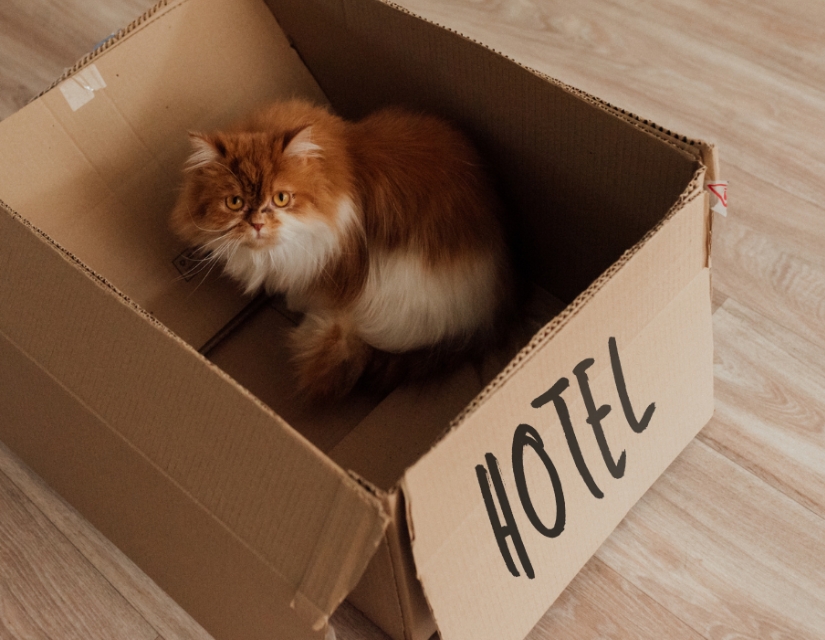
Say NO to companies that:
- Use punishment like shouting, hitting, spray bottles, shock, prong or choke collars
- Discourage you from observing the service or facilities
- Refuse to use rewards
- Talk about “dominance” or “alphas”
- Insist on using forceful restraint with animals
- Don’t tell you about any incidents that happen to your pet
Trust yourself!
If a pet service provider says or does something that makes you or your pet uncomfortable, it’s okay to leave or stop to ask more questions.
Additional questions to ask when looking for
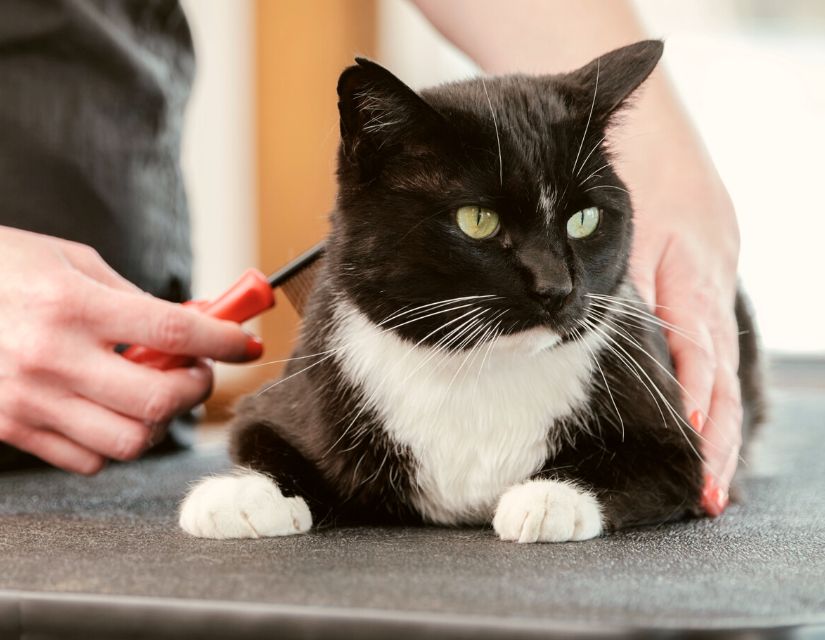
- Does the groomer offer “meet-and-greet” appointments or book extra time at the first groom to help your cat have a positive first visit?
- Does the entry and exit area layout or scheduling ensure animals don’t have to meet each other?
- Do grooming tables have non-slip surfaces?
- If cage dryers are used, is your cat continuously supervised to ensure they do not overheat or get burned?
- What is the reward-based procedure used if a cat shows signs of fear or anxiety?

- How many cats per caregiver? (no more than 10 cats per caregiver is recommended)
- Are cats housed separately from dogs?
- Do enclosures have enough space for your cat to stand, sit, turn around, lie down flat on their side, and stand on hind legs without touching the top?
- Do enclosures let your cat sit, sleep, and eat away from the litter box area?
- Is your cat provided with a hiding space and a perching space?
- Does the daily feeding & care schedule include exercise and social interaction?
- Are welfare checks done 4 times (minimum) per day to look for signs of ill health or abnormal behaviour?
- What do they do when cats show signs of stress, such as fearfulness, excessive hiding, lack of eating, urination out of the litter box, and excessive vocalization or grooming?
- How are cats monitored overnight?
If you are looking for pet sitting services, ask these questions before you hire a pet sitter!

- How many dogs per caregiver? (no more than 10 dogs per caregiver is recommended)
- Do kennels have enough space for your dog to stand, sit, turn around, lie down flat on their side, and stand on hind legs without touching the top?
- Do kennels let your dog to sit, sleep, and eat away from the area they defecate or urinate in?
- If crates are used overnight, does your dog have space to stand, sit, turn around, and lie down flat?
- How many hours will your dog be in the crate?
- Are dogs provided with a sleeping platform or bedding?
- Does the daily feeding & care schedule include exercise and social interaction?
- Are welfare checks done 4 times (minimum) per day to look for signs of ill health or abnormal behaviour?
- What do they do when dogs show signs of stress, such as fearfulness, excessive barking or excessive chewing?
- How are dogs monitored overnight?
If you are looking for pet sitting services, ask these questions before you hire a pet sitter!

- Does the groomer offer “meet-and-greet” appointments or book extra time at the first groom to help your dog have a positive first visit?
- Does the entry and exit area layout or scheduling ensure animals do not have to meet each other?
- Do grooming tables have non-slip surfaces?
- If cage dryers are used, are dogs continuously supervised to ensure they do not overheat or get burned?
- What is the reward-based procedure used if a dog shows signs of fear or anxiety?
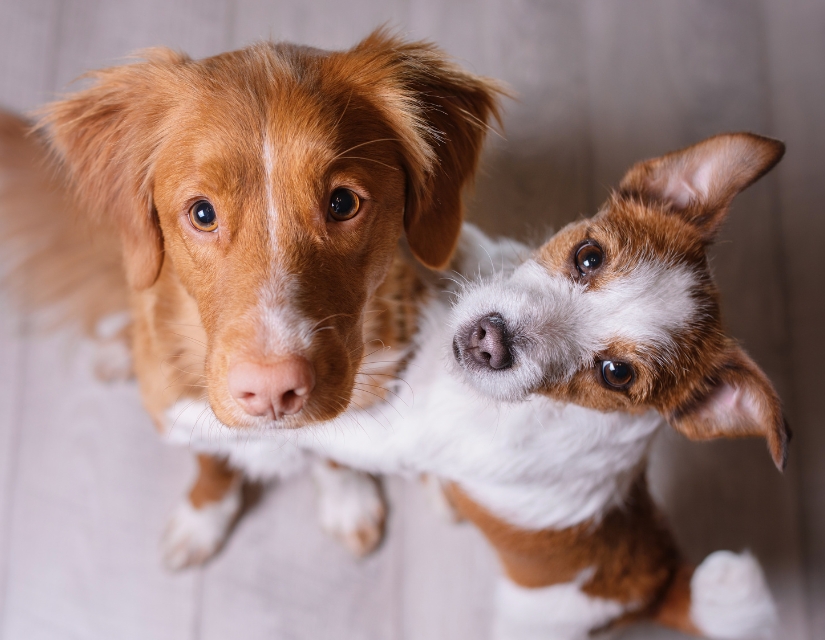
- How many dogs per caregiver? (no more than 10 dogs per caregiver is recommended)
- How many dogs are inside an enclosure? (a maximum group size of 20 is recommended)
- How are dogs grouped? (grouping by size, age, and play style is recommended)
- Do enclosures have places for dogs to hide and rest away from the play?
- If crates are used for rest time, was your dog assessed for crate compatibility first?
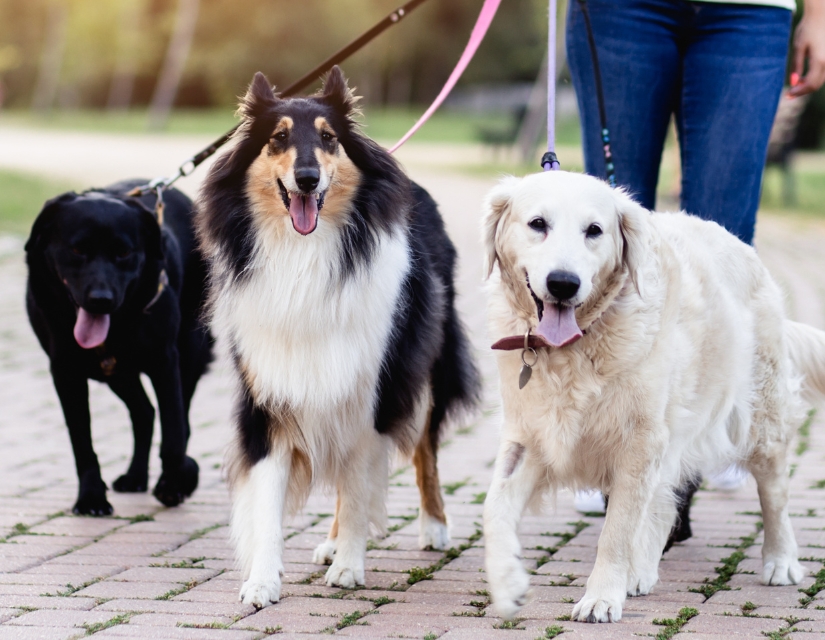
- What type of collar or harness is used? (electronic “shock”, prong, or choke collars should never be used)
- How many dogs per walker? (no more than 6 dogs per walker is recommended)
- Will your dog go off-leash? If yes, will GPS collars be used?
- How are dogs matched for groups? (grouping by size, age, and energy level is recommended)
- What is the plan if a dog escapes or is lost?
- How do walkers manage leash pulling and excessive barking?
- If transported, how are dogs are secured inside the vehicle?
- How many dogs will be in the vehicle at a time?
- How is the interior temperature monitored?
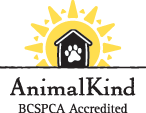
The BC SPCA values the essential services that companion animal businesses provide and wishes to help guardians select businesses that are committed to using only humane handling and reward-based care.
To help the public choose a dog daycare, dog walking, pet boarding or grooming service, the BC SPCA created evidence-based standards for these pet services businesses with feedback from the industry, pet guardians, veterinarians and behaviour experts.
The AnimalKind Companion Animal Services Standards are voluntary, and companies that follow the standards are committed to humane handling and reward-based care.
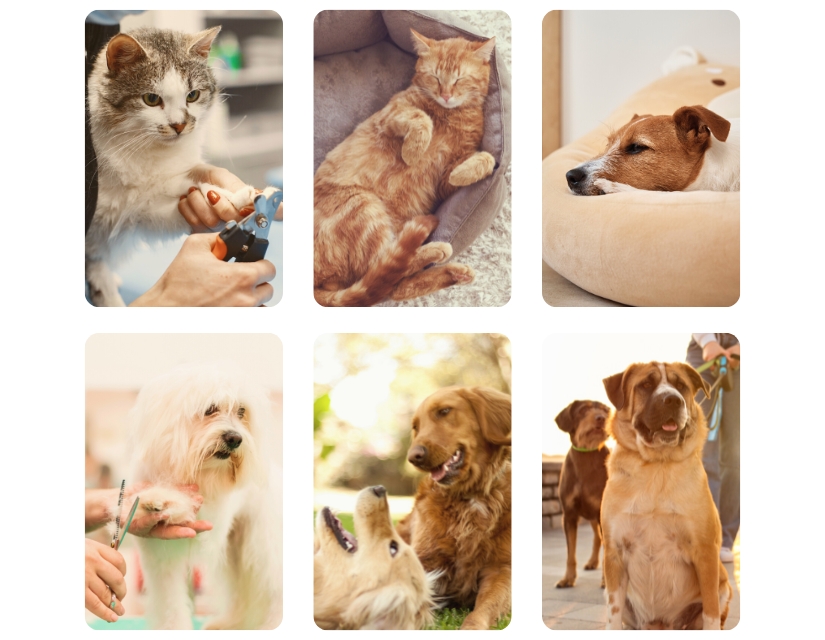
Are you a pet services business operator?
Visit the resource page for pet services businesses to find the information you and your staff need to incorporate into your day-to-day practice, to achieve the high animal welfare you are devoted to.
Check out resources available for your pet care services business





